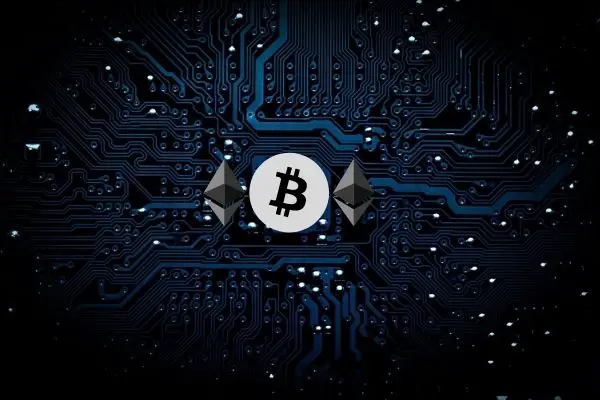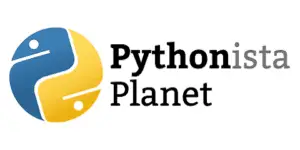Do you aspire to be a blockchain developer? If that’s the case, you’ve come to the right place! We will look at what blockchain is, what to learn to become a blockchain developer, and how you can become a professional blockchain developer in the existing market. Let’s get this ball rolling.
What is Blockchain?
Have you ever wondered about an easier way to complete transactions without needing a bank or a third party as a middleman? Yes, it’s possible, thanks to blockchain technology.
As the name suggests, a blockchain is a chain of blocks linked using cryptography. Each block contains information like transaction details, user data, or any valuable data that needs to be stored.
A blockchain is a distributed, immutable, decentralized ledger (decentralized means there is no central authority) that makes it easier to record transactions and track assets. An asset can be tangible (house, cash) or intangible (patents, copyrights).
Why Should You Become a Blockchain Developer?
Here are a few reasons why you should consider becoming a blockchain developer.
| High demand in the market | With the rise of cryptocurrencies like bitcoin, DApps (decentralized apps), NFTs (non-fungible tokens), etc., blockchain technology has seen a surge in popularity and expansion. It piqued the interest of several sectors, which implies more work chances for you. |
| High salary package | The average wage for a blockchain developer in the United States is between $150,000 and $175,000 per year. Developer’s compensation is one of the highest in the industry. If you have an extensive understanding of blockchain, you can earn up to $200,000 a year. |
| Cryptocurrencies and ICOs | You will learn about various cryptocurrencies, ICOs (Initial Coin Offerings), and how they and their organizations may generate funds by utilizing new income streams with crypto. You may get a chance to invest in a revolutionary technology before most people get to know about it. There are also a lot of business opportunities in the blockchain field. |
| Transparency and Security | Blockchain provides a completely trustworthy network. It is an excellent choice for developing systems or solutions that require enhanced security and identity protection. We are living in an era where privacy and transparency are major issues. You, as a blockchain developer, can provide solutions to these issues. |
Roles in Blockchain Development
There are two major roles in blockchain development:
Core Blockchain Developers
Core blockchain developers are primarily in charge of establishing the structure of a blockchain network, how its policies should be built, the design of the consensus protocol, and other high-level choices and development related to blockchain technology. In short, core blockchain developers build blockchain networks.
Responsibilities:
- Blockchain protocol design
- Design of security patterns
- Design of network consensus protocols and architecture design for the network
- Monitoring the entire network
Blockchain Software Developers
Blockchain software developers develop decentralized apps that operate on blockchain technology using the architecture and protocols developed by core blockchain developers. In short, blockchain software developers build DApps (decentralized apps) using the existing blockchain networks.
Responsibilities:
- Development of smart contracts.
- Development of apps, interactive front-end designs, etc.
- Blockchain-related backend development.
- Monitoring over the complete stack that runs the apps.
Technical Requirements for Blockchain Development
Now we have a clear picture of what a blockchain is and the types of blockchain developers. Let’s have a look at the technical requirements for becoming a blockchain software developer.

1. Understand the Blockchain Architecture
Make sure you clearly understand what blockchain is and concepts such as advanced blockchain security, decentralized applications (DApps), blockchain integration, and the benefits of blockchain.
You need to be strong with the fundamental principles, ideals, and architecture of blockchain. Learn about decentralization, including its public and private approaches, the use of consensus in network decision-making, and the use of common blockchain development tools. You should familiarize yourself with the market in addition to the technical elements.
There is a need to comprehend several blockchains and how they function – the most essential of which are Ethereum and Bitcoin. Try developing some simple projects to gain more understanding of blockchain architecture.
You can enroll in online classes if you want to get material in a prefabricated style. Make use of online course platforms such as Udemy, Coursera, Udacity, etc.
You can also find a lot of free material on YouTube. The internet helps you study anything for free, but not all of it is trustworthy. You need to learn from reputable sources to become a great web3 developer in less time. Only take information from credible blockchain developers into consideration.
2. Learn About Smart Contract Development
One of the essential blockchain ideas to understand is smart contracts. It’s a digital protocol similar to a real-life legal contract. You may use it to automate or enhance the functionality of your app. A smart contract must be terminable, deterministic, and isolated.
Every blockchain is now attempting to add smart contract capabilities into its system for business logic to be readily deployed on the blockchain. As a result, developers interested in working in the blockchain industry should surely learn about smart contracts. You can create smart contracts using programming languages like Solidity.
3. Programming Languages for Blockchain Development
Let’s see what are the programming skills needed to become a blockchain software developer. To become a full-stack blockchain developer, you need two things: web development skills for building the web application, and blockchain skills for building smart contracts.
First of all, you need to learn a programming language for building smart contracts. Solidity is a programming language used to build smart contracts on Ethereum-based blockchain networks.
Go ahead and learn Solidity to build smart contracts on Ethereum. For building smart contracts on the Solana network, Rust programming language is the best option. Pick your blockchain network and choose a programming language accordingly.
I suggest you start with the Ethereum blockchain network and learn the Solidity programming language. Ethereum has been around for a while, and several tools and resources are available to help you out on your blockchain journey.
Once you have learned how to create smart contracts, you can build other skills on top of that. To become a full-stack developer, you need to learn how to build the front-end and back-end of a web application.
To build the front-end, you need to learn HTML, CSS, and JavaScript. You can use React if you want to use a front-end framework. To build the back-end of your blockchain application, you can use NodeJS, which is a JavaScript framework. I prefer to use NodeJS as you can do most things with JavaScript itself. We have many libraries in NodeJS (like web3.js) that will help you easily integrate with blockchain.
You can also use Python or Java instead of NodeJS for the back-end if you want. If you want to develop a blockchain using Python, check out this tutorial.
I suggest you learn the technical skills required for blockchain development by doing projects. Create a decentralized application by following a tutorial/course and learning things on the go. You can find a lot of amazing free tutorials on YouTube channels like Dapp University, Clever Programmer, etc.
If you want to build a blockchain network itself (blockchain core development), you can learn lower-level programming languages like C++, Golang, etc.
4. Have a Basic Understanding of Cryptography
Another useful technological skill is cryptography. Cryptography is a method of protecting digital data. It is a branch of computer science that focuses on converting data into forms that are inaccessible to unauthorized users.
Blockchain secures data by employing powerful cryptography methods. Understanding the basics of cryptography may help you successfully develop blockchain-related applications.
5. Learn the Basics of Data Structures
Understanding data structures is another essential technical ability for a blockchain developer. As a developer, you must learn the fundamentals of data structures. It allows you to experiment with the blockchain and customize it to your specifications.
You don’t need to be an expert in data structures. If you know the basics of how different data structures work, you can implement those concepts when you build your application.
6. Keep Yourself Updated
Blockchain technology is rapidly developing. New programming languages like Simplicity are coming up to solve different problems. So keep an eye on the upcoming technologies in the blockchain space.
Read blockchain-related news, books, and articles to keep yourself updated on recent trends as it is a developing field. My go-to place for blockchain is the YouTube channel Dapp University. There are several other websites and YouTube channels that provide high-quality blockchain material.
Final Thoughts
There is a high demand for blockchain developers, and if you know your basics well, you will have an easy time finding work. Working on real-world projects is the best way to learn blockchain and become a blockchain developer.
I hope this article was helpful to you in getting a clear picture of how to become a blockchain developer. Go ahead and learn the technologies and build some amazing blockchain applications.

